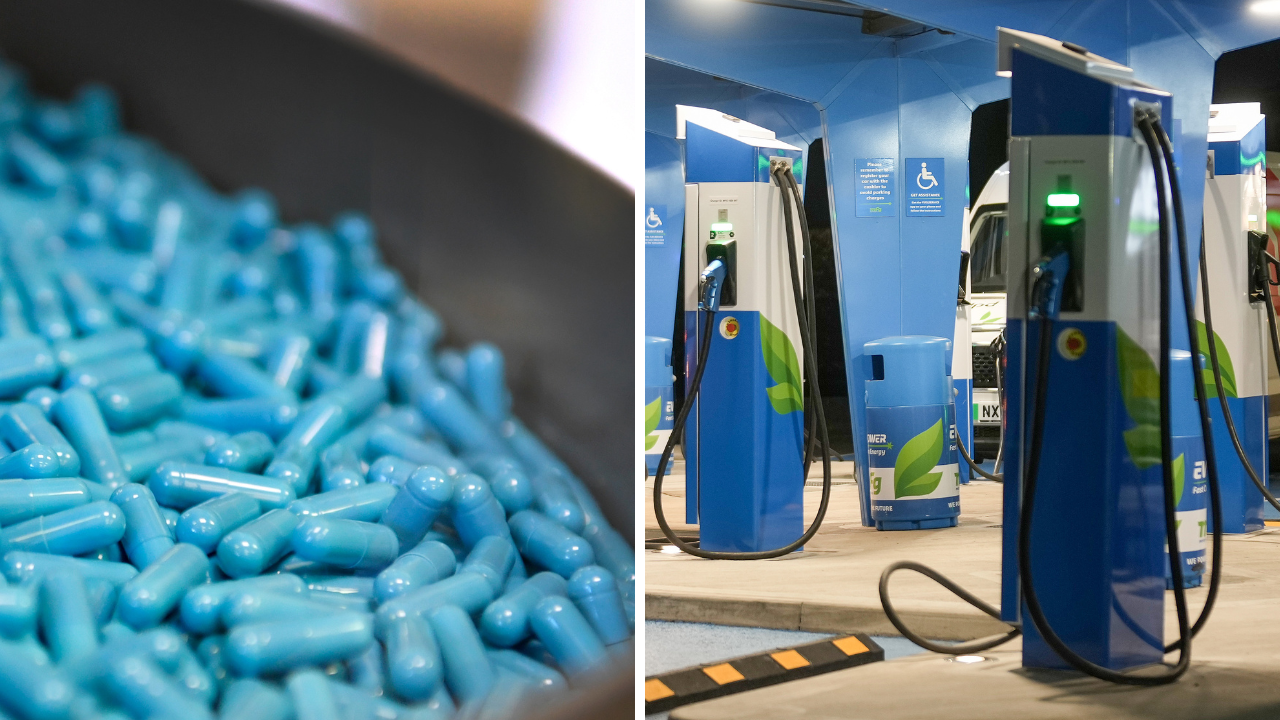Joe Biden's agenda on climate change 0:48
(CNN Spanish) --
The bill for the Reduction of Inflation, a legislation of US $ 750,000 million with definitions on the health system, the climate and taxes, already has the green light from the Senate and is headed to the House of Representatives.
Despite its name, experts do not reach an agreement on whether or not it will actually reduce inflation.
What seems clear is that it will impact the prices of at least two items: medicines and energy.
After an intense process of negotiations, the Senate approved the project on Sunday by 51 votes in favor and 50 against, with Vice President Kamala Harris breaking the tie.
She will now have to vote in the House of Representatives, controlled by the Democrats, where the discussion of the Inflation Reduction Act is expected for this Friday, August 12.
Savings on medications and extension of Obamacare benefits
The law would give Medicare, for the first time, the power to negotiate the prices of certain prescription drugs that are dispensed in doctors' offices or sold at pharmacies, allowing costs to come down.
In 2026, the Health and Human Resources Service would negotiate the cost of 10 drugs and in 2027 and 2028 it would add 15 more each year.
From 2029 onwards, it would negotiate the prices of 20 more medicines each year.
The bill would also make it possible to cap the increase in the price of certain drugs for inflation and limit what Medicare enrollees pay out of pocket for drugs purchased at the pharmacy.
As soon as?
The limit would be $2,000 for prescription prescriptions and $35 a month for insulin for patients who use it.
The law also provides for the extension of the Affordable Care Act grants, which could save health coverage for countless people and extend over time one of the greatest achievements of the Democrats in the 21st century.
Obamacare subsidies would not expire after the 2024 presidential election but would continue through 2025, one more year from the date lawmakers recently discussed.
advertising
In addition, Obamacare out-of-pocket premiums could not exceed 8.5% of beneficiaries' income compared to the current 10%.
Reduction of polluting emissions and energy expenditure
The project would spend nearly $370 billion to reduce greenhouse gas emissions that contribute to climate change, the largest climate investment in US history.
And it's also the biggest victory for the environmental movement since the Clean Air Act.
Emissions could be reduced by 40% by 2030 under the project, according to analysis by Senate Majority Leader Chuck Sumer's office and independent sources.
(Getting to the 50% goal that President Joe Biden has pledged would also require strong regulations and state action.)
The law also has multiple tax incentives with the aim of reducing energy costs by betting on the use of renewable sources and encouraging more US consumers to switch to electricity to power their homes and vehicles.
Moody's estimates that the plan's energy provisions would reduce the energy bill of a typical American home by about $300 a year in 2018 dollars. Families would also benefit from reduced insurance rates due to lower insurance rates. emissions and physical risks, according to the rating agency.
In addition, the law contemplates reimbursements of US$7,500 for those who acquire new electric vehicles and US$4,000 in the case of used ones.
Taxes and deficit, two keys to the Inflation Reduction Act
The legislation also establishes new taxes, including one of 15% on the income that large companies declare to shareholders, known as accounting income, as opposed to the figures they handle with the Internal Revenue Service.
The measure, which would allow the collection of US$258,000 million, would apply to companies with profits of more than US$1,000 million.
The Inflation Reduction Act also adds a special tax on corporate share buybacks, raising some $74 billion, according to a Democratic adviser.
The legislation would make it possible to reduce the deficit.
But will the Inflation Reduction Act lower the cost of living?
There is no agreement on that
Some experts argue that the legislation will probably have little or no effect in reducing inflation.
An independent analysis by the Penn Wharton Budget Model concluded that it could cause inflation to pick up slightly in the coming years, but would reduce it later, towards the end of the decade.
The slight increase would occur because expanding Obamacare subsidies would leave millions of people with more money in their pockets and more propensity to spend it.
The brake on inflation later in the decade, meanwhile, would come from deficit reduction spurred by fiscal and drug price measures.
"We're not very confident that this will have any impact on inflation," said Penn Wharton's Ken Smetters.
"It's just not big enough, relative to the size of the rest of the economy."
Moody's Analytics also found that the Inflation Reduction Act is unlikely to have a drastic effect on inflation, especially in the short term.
It estimates that the plan would reduce the rate of consumer price inflation by 0.33% by the fourth quarter of 2031. That translates to a reduction in CPI inflation of 3.3 basis points a year on average.
However, Moody's concluded that it will have a "material beneficial economic impact" for citizens.
Other economists, including 126 who sent a letter to congressional leaders, are more optimistic about the prospects of the bill lowering prices, although they did not qualify its scope.
The letter's writers include former Democratic officials and pundits from leftist
think tanks
who argue that because the legislation would reduce the deficit, it would put "downward pressure on inflation."
The package counteracts inflation in three ways, former Treasury Secretary Lawrence Summers told CNN's John Berman: by reducing the deficit and reducing prescription drug prices, and through measures to promote the transition to renewable energy.
Nobel Prize-winning economist Joseph Stiglitz, one of the signatories of the letter to congressional leaders, said a key driver of inflation is high energy costs, which the bill aims to address through environmental investments. .
"There is a simmering debate about the causes of inflation, but whichever side you take in that debate, this bill is a step forward," said Stiglitz, a professor at Columbia University.
With reporting from Stephen Collinson, Alex Rogers, Clare Foran, Ali Zaslav, Manu Raju, Tamy Luhbi, CNN's Matt Egan.
Climate changeInflation








